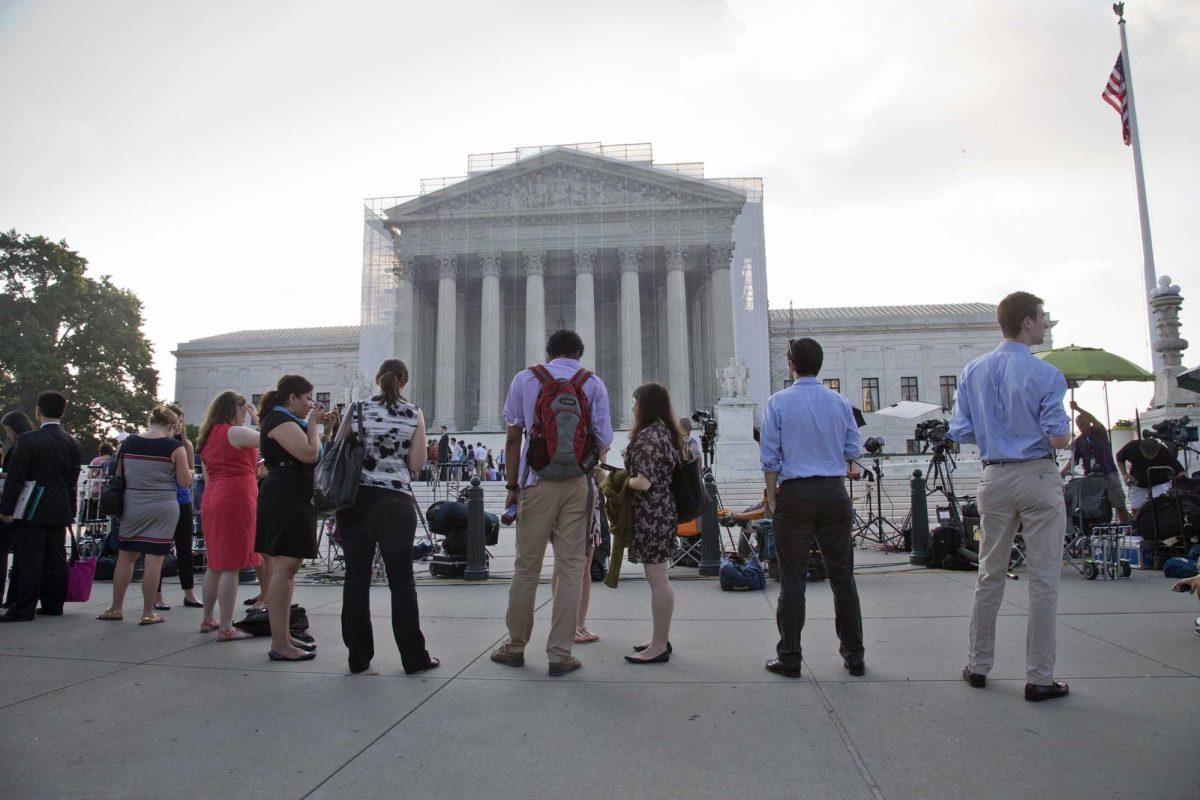Shortly after the Supreme Court ruled that Section 4b of the 1965 Voting Rights Act was unconstitutional, many states started moving to pass legislation that would make voting difficult for key minority groups and students.
The Voting Rights Act of 1965, which was created to ban racial discrimination in voting, was defended by the 15th Amendment and in 2006, Congress voted to extend the law for 25 more years.
“The majority struck down Section 4b of the law, declaring unconstitutional, the formula used to identify which state and local governments with a history of racial discrimination were required to get pre-clearance by the Justice Department or a federal court before enacting changes to their voter eligibility,” said US Attorney Gen. Eric Holder.
However, these provisions protected many voters — mostly minority groups and young people — from unfair gerrymandering, voter ID requirements and early voting restrictions. For many voters, the Voting Rights Act was their only protection.
In Chief Justice John Roberts’ opinion, he argued that the Voting Acts Right of 1965 is not necessary because we have eradicated racism in America.
Yet, not even two hours after the Supreme Court ruling, Texas passed a law that was previously blocked by the Voting Rights Act, which will require IDs for all voters and start redistricting the state. According to The Department of Justice, thousands of registered voters in Texas — especially Latinos — do not have the necessary identification.
A few days later, North Carolina legislature moved to forward bills that would discourage college students from voting by raising taxes on families with college students who choose to vote at school rather than at home.
Senate Bill 667, known as “Equalize Voter Rights,” says, “If the voter is a dependent of the voter’s parent or legal guardian, is 18 years of age or older and the voter has registered at an address other than that of the parent or legal guardian, the parent or legal guardian will not be allowed to claim the voter as a dependent for state income tax purposes.”
States like Florida and Ohio have put restrictions on early voting which will make election day lines extremely long and almost impossible for students to stand in.
In 2012, Florida passed a law that restricted volunteer-led voter registration drives on college campuses and in communities. This law was later blocked because it was deemed unconstitutional.
Young voters are an important part of the electoral. According to The New York Times, nearly 11,500 Americans turn 18 every day. In 2008, 18- to 29-year-olds made up 21 percent of the voting population.
As young voters become a more prominent force in elections, more legislation is used to undermine their right to vote. The overturning of the Voters Right Act of 1965 is just proof of that.
The Supreme Court’s decision is binding. Obama has asked congress to enact legislation that will protect venerable voters and help rebuild some of the important aspects of the Voting Rights Act of 1965.
It is also up to constituents to inform legislatures that their bills are unpopular and unfair.
Most importantly, young people and minorities have to vote in November despite these difficulties. Prejudicial legislation like this can only survive if no one stands up against it, and young people make a valiant effort to protect their voting rights by speaking out on campus and reaching out to their state legislatures.
Elizabeth Garcia is a 21-year-old mass communication junior from Greensboro, N.C.
Opinion: Recent bill poses danger to student voting rights
July 10, 2013
FILE – This June 24, 2013 file photo shows people waiting outside the Supreme Court in Washington as key decisions are expected to be announced. The Supreme Court said Tuesday that a key provision of the landmark Voting Rights Act cannot be enforced until Congress comes up with a new way of determining which states and localities require close federal monitoring of elections. (AP Photo/J. Scott Applewhite, File)





